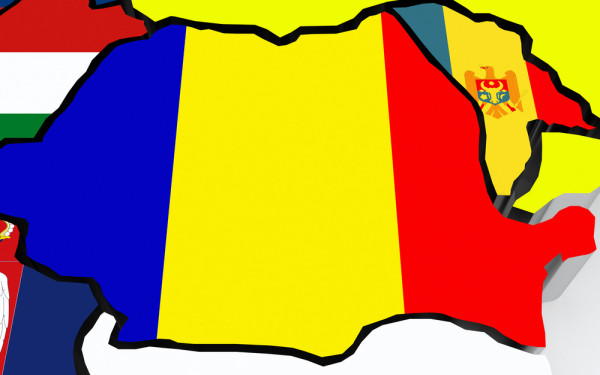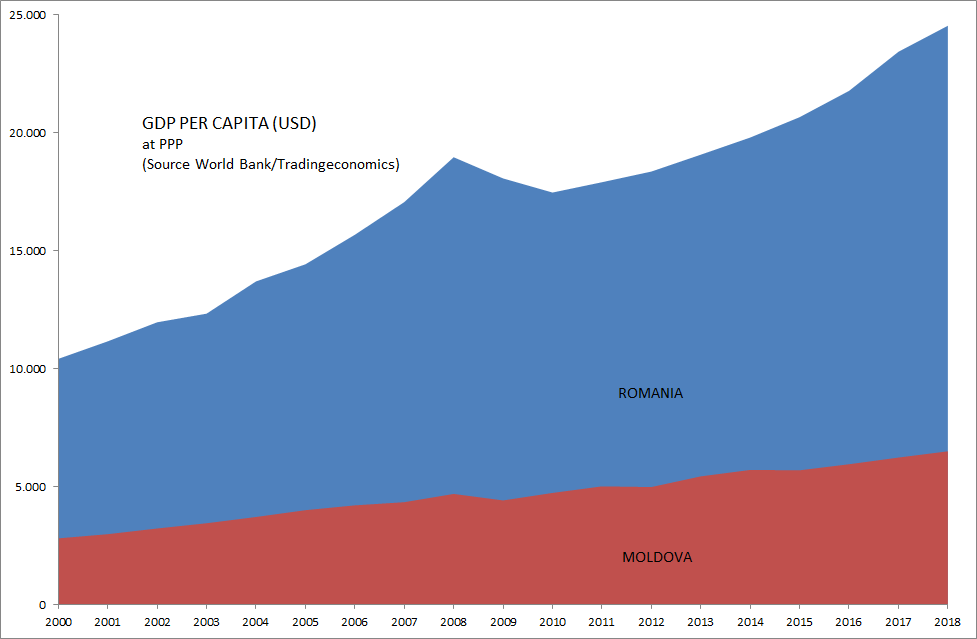1918 was a watershed moment for Romania and will remain an exceptional year in its history. The stars aligned into a great conjunction that not even the most upbeat dared to dream of. Historian Lucian Boia noticed that the outbreak of World War I confronted Romanian politicians with a huge dilemma: join the Triple Entente and have the best setting to attach Transylvania if it emerged victorious against Austria-Hungary, or the Triple Alliance whose victory against Russia would have allowed Bessarabia to unite with Romania. In other words, two mutually exclusive alternatives. In that context, Romania`s reunification by attaching all the main historical provinces seemed an impossible feat. And yet, despite its choices, the union with Bessarabia came as an unexpected bonus, enthusiastically welcomed, however, by the entire country.
Nowadays, though, in spite of all the European historical and geographical rearrangements in the last century, we continue to passionately relate back to that historic turning point. Most European states went through similar critical moments at some point in their history. And yet, the Hungarians may be the only ones beating us in their longing for the glorious past.
Sadly, sentiment is never enough to help correct the injustices of history, and vision, pragmatism, brains and planning are by far more important. Political developments in Moldova demonstrate how Romania has failed to respond to Bessarabia`s embrace in every aspect. Surprised? Not in the slightest.
 What were the chances with Romania not even having a country project for itself to succeed in integrating Bessarabia back into the Homeland? That would have been a highly complex project, politically, economically, socially, culturally, conducted against some powerful hostile centers of power, well organized both in Bessarabia and abroad. Romania`s “plan” is reflected in the mayhem of politics and intelligence that set us apart across the Prut river. It points out to a complete lack of strategic thinking and coordination. Dissent between Romanian institutions has been accurately copied in Bessarabia with the disastrous effects that are now visible.
What were the chances with Romania not even having a country project for itself to succeed in integrating Bessarabia back into the Homeland? That would have been a highly complex project, politically, economically, socially, culturally, conducted against some powerful hostile centers of power, well organized both in Bessarabia and abroad. Romania`s “plan” is reflected in the mayhem of politics and intelligence that set us apart across the Prut river. It points out to a complete lack of strategic thinking and coordination. Dissent between Romanian institutions has been accurately copied in Bessarabia with the disastrous effects that are now visible.
That was how we intended to prove ourselves alongside the great geopolitical players in the area, the self-professed experts on Moldovan issues. We ended up ignored by the great European powers which many times kept us on the sidelines of the political and geopolitical arrangements concerning Moldova, that on more than one occasion came as a surprise.
Has that ship sailed never to return? Most likely yes. Could it have played out differently? Certainly, provided that our actions in the country would have been synchronized, we had a vision and did not underestimate our rivals. We however, bet on the wrong horses, embraced the spotted ones and gave the cold shoulder to the white ones who chose to rush directly to the West instead of south-west.
For decades we have been pouring hundred of millions of euros into that area only to find today how little change that has brought about in terms of mindsets, popular values and geopolitical preference. Simulating democracy and the rule of law managed to fool for a while but the truth came out in the end. Neither Romania, nor Europe stood a chance to really win the hearts of people as long as the overwhelming majority of the communication channels was leaning the other way.
Maintaining the territorial integrity of the Republic of Moldova with the Trans-Dniester included was the recurrent theme consistently repeated, even though that “boulder” finally sank the entire Bessarabia. Integrating the Trans-Dniester politically and votewise may prove to be the safest way for the incumbent rulers to make sure that Moldova will part ways with Europe and Romania. Moldovan`s elites lack the courage to clearly settle the issue and that will soon show its probable irreversible effects.
The elections in Bessarabia showed once again the political options of the majority fuelled, that`s true, by an anti-Romanian rhetoric spiced with nostalgically reminiscing about the Soviets and nationalism. The fact that the young and most educated, the very people who contemplated their future in Europe left helped maintain the isolationist trends in Moldova. Realistically, the chances to see a turnaround are minimal as migration is set to continue. All that the new political set-up does is confirm it. Not even the pro-reform parties` win of Chisinau could be repeated in the last local elections. Bessarabia is slowly and surely heading towards vassalage with terrible economic consequences.
The graph below should silence those who have been fiercely defending Moldova`s ambivalence for the sake of a hypothetical advantage of neutrality. It was that very “neutrality” which caused it to miss the boat of European convergence that Romania boarded.

In the absence of a functioning market economy and rule of law, financing and investments into the country will be trickling in which will further widen the growth gap with Romania. Compared to Romanians, its people will be poorer and poorer intoxicated by the “independent Moldovan nation” myth. That is an option that we should learn to respect and let others pick up the bill of keeping the region afloat. Which is about to happen.
According to information in the press, the government in Chisinau is planning on terminating the IMF agreement, deemed too restrictive for a EUR 500 million loan from Russia. Will it ever be repaid? Unlikely. And Russia will not be as generous (or naïve?) as Romania to turn it into a grant. I think that in return we will probably see Moldova commit to new geopolitical obligations and transfer the strategic assets not yet sold which would firmly establish the country into another sphere of influence: in term of communications, politics and economics.
Does that pose any threats to Romania?
At the end of the day we are talking about a landlocked country between Ukraine and Romania not at risk of becoming a new Kaliningrad given the much narrower supply routes across it. The Trans-Dniester portion is an important storage of ammunition and weapons wearing out and becoming obsolete with every year that goes by. And Ukraine, Romania and NATO will have to make sure that it stays that way.
Romania should stop chasing a runaway train and fully commit to other priorities. Firstly, it should come up with a country project that leads to rapid and well-balanced growth by bringing the Romanian province of Moldova at the same level of development as Transylvania or Muntenia [eastern part of Wallachia]. The few available resources should be channeled first towards sustainably growing the standard of living through development. We should also recognize that our obligation is to the people of Bessarabia and not the land itself. Therefore, those resources should also be used to support those willing to move permanently to Romania.
Romania is in dire need of labor and wages are rising fast. All young people from Bessarabia whom I have worked with struck me as very bright and serious, as well as being fully integrated. They should be encouraged to come to Romania by increasing the number of scholarships, providing a relocation allowance and subsidized mortgage loans. That would be in line with both our moral duty, and economic priorities.
It is high time, I believe, that we admitted that we missed a historic opportunity. This is why we should now say with resignation “Farawell, Bessarabia” and extent a warm and generous “Welcome to Bessarabians loving the land and nation”. And continue our journey together…
Have a nice weekend!
Subscribe to receive notifications when new articles are published
